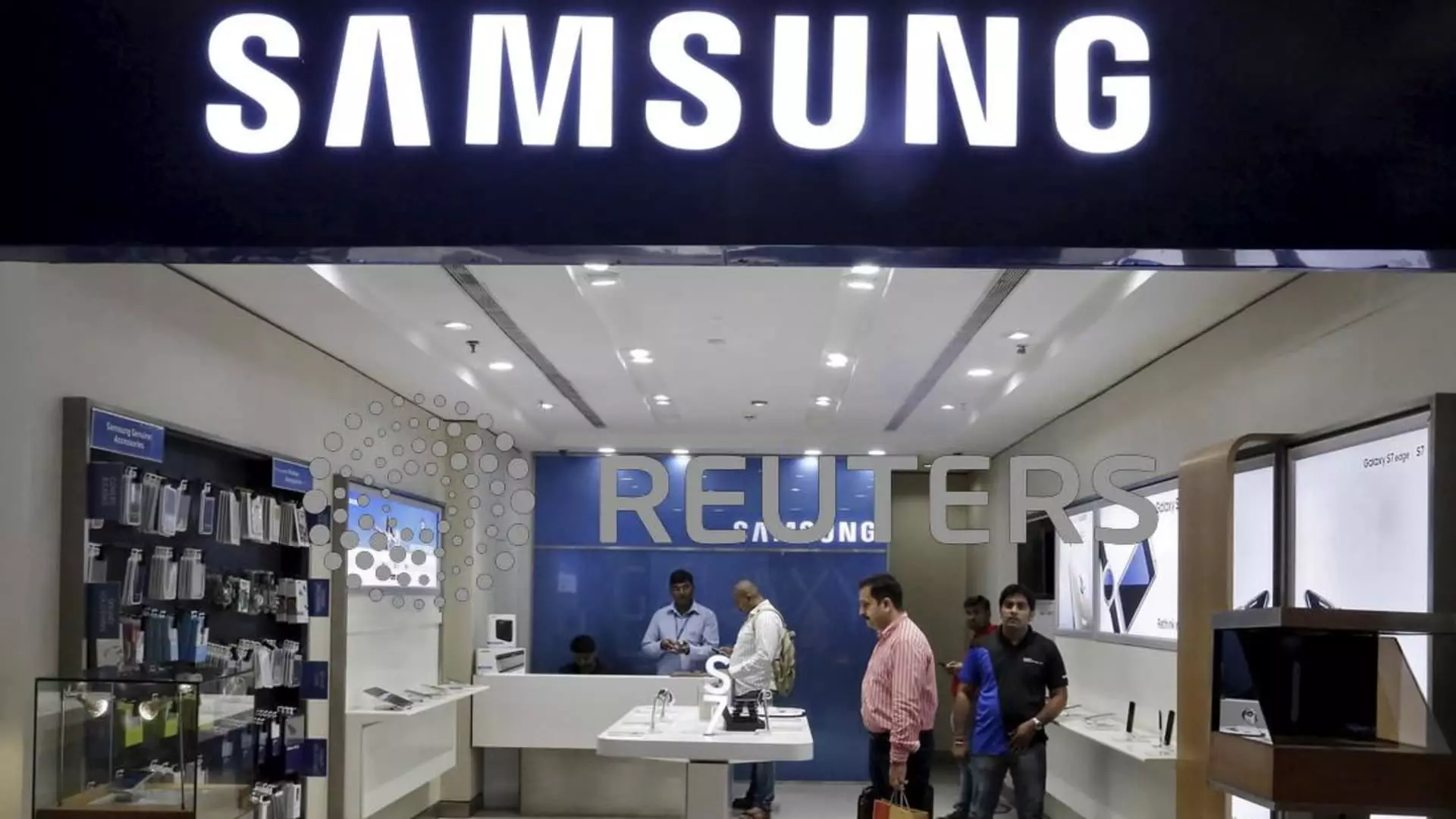Samsung Electronics recently unveiled its financial results for the third quarter, revealing a performance that exceeded some of its own expectations. Sales reached 79.1 trillion won (approximately $58.4 billion), slightly outpacing the company’s earlier guidance of 79 trillion won. Meanwhile, the operating profit of 9.18 trillion won, while above the anticipated figure of 9.1 trillion won, still fell short when compared to market analysts’ expectations, which had forecasted a much more robust profit of 11.456 trillion won. This discrepancy illustrates the ongoing challenges the company faces in a rapidly shifting market landscape.
While Samsung has maintained its position as the premier manufacturer of memory chips for laptops, servers, and smartphones, the company is grappling with stark declines in its semiconductor profits. The chip division reported an operating profit of 3.86 trillion won, reflecting a dramatic 40% decline from the second quarter. Although there has been a burgeoning demand for advanced memory chips bolstered by the rise of artificial intelligence applications and server technology, the semiconductor unit is hindered by “inventory adjustments,” drastically affecting mobile demand. Samsung’s acknowledgment of increased competition from legacy product lines in China further complicates its market position.
In light of these mixed results, Samsung’s leadership appears cautiously optimistic about future growth prospects, particularly in advanced chipsets. Vice Chairman Jun Young-hyun, who leads the company’s device solutions division, expressed a commitment to navigating these challenges. He noted that despite current setbacks in the mobile and PC sectors, steady investment in artificial intelligence is expected to stimulate demand for more sophisticated product offerings. The anticipation of a rebound in mobile and PC markets has been pushed to future quarters, a reflection of prevailing uncertainties.
The current landscape for Samsung is quite fraught, especially for its stock performance. Shares have plummeted by over 24% in 2023, signaling a loss of investor confidence amid worries about the company’s ability to regain momentum in the short term. The proliferation of advanced technology and the ongoing digital transformation continues to create opportunities within IT sectors. However, the sluggish recovery in mobile and PC demand presents a vexing challenge for Samsung, as tech companies globally navigate supply chain hiccups and evolving consumer preferences.
Ultimately, Samsung’s third-quarter results paint a picture of a tech giant at a crossroads. Despite modest successes, the substantial downturn in profitability within the semiconductor unit and overall market volatility pose significant hurdles. The company’s strategic focus on artificial intelligence and advanced chip technology is a promising pivot, but the path ahead remains fraught with uncertainties. Moving forward, Samsung must adeptly manage internal and external challenges to reclaim its stronghold in technology markets and appease concerned investors.

